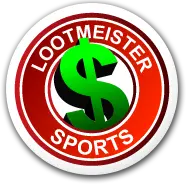NFL Betting: Pick Good Teams or Bad Teams?
By Loot, NFL Football Handicapper, Lootmeister. com
There is a school of thought that betting on bad teams is where the money is at. The money comes pouring in on the celebrated teams, making good value for selecting more darkhorse teams. We all know who the glamor teams are in the NFL. Most of those teams have national fan bases, meaning a lot of people are betting on those teams. The bookies set lines knowing those teams will be bet on regardless of value.
So there are certainly a plethora of chances during a typical NFL season to cash in on the bookie’s generosity by picking against these more popular teams with inflated point-spreads in their favor. In addition, there is a thought that games amongst mediocre or bad teams who are not nationally celebrated have point-spreads that are less immune to being moved by hype. And true enough, better value on both sides of the bet can often be found in the games that are less followed nationally.
In the last few years, however, it seems that betting on bad teams against the spread, has become less attractive and the numbers bear this out. In addition, greater profits have been showed when betting on “good” teams.
The ten best NFL teams against the spread in the 2011 regular season actually consists of 11 teams with a 10th place tie. Of those 11 teams, 6 made the playoffs. That’s just under 55%. With 12 playoff spots among the 32 teams, that’s only 37.5%. So on average, the best teams against the spread made the playoffs at a much higher rate than average.
THERE IS A REASON THAT BOVADA
SPORTSBOOK WAS VOTED THE PLAYERS FAVORITE! CHECK THEM OUT AND SEE FOR
YOURSELF! (CREDIT CARDS WORK HERE + 100% BONUS!)
Theoretically, the spread is supposed to even everything out. Then why were the ten (actually 11) best NFL teams in 2011 a combined 103-71 straight-up? Does that seem to suggest that the better teams in terms of just winning the game straight-up are the better teams when performing against the spread?
The 2010 season also saw some holes being poked into the theory that the bad teams are where the money is. With a 4-way tie for 9th place, there were 12 teams that made this list of the best covering teams. Of those 12 teams, 7 made the playoffs for a clip of over 58%. The combined straight-up won-loss record for those teams was 118-74. That figure would be even more steep if not for Detroit and Washington making that list–two teams who were 6-10 straight-up.
Then again, that does show that bad teams can be good against the spread. In 2011, among the best ten teams against the spread were 7-9 Seattle, 6-10 Carolina, 7-9 Kansas City, and 8-8 Oakland. At the same time, it’s hard to ignore that the 5 worst teams against the spread in 2011 were a combined 24-56 straight-up.
It’s hard to say if this means betting on bad teams is a bad idea or if these teams just over or under-performed in given seasons. Of the best teams against the spread in 2011, San Francisco was the biggest surprise. No one really expected Green Bay to follow up a Super Bowl season with a 15-1 regular season, considering how Super Bowl teams typically are a bit hung-over the next year. And when you look at the five worst NFL teams against the spread in 2011, these are teams who were either hurt by injuries or squads that just under-performed. Those 5 teams–St. Louis, Tampa, Dallas, San Diego, and Indianapolis–all had major issues during the season.
Teams that play better than expected are obviously most likely to be the best against the spread. And conversely, teams who are riddled with problems are not going to be very good betting choices. Acknowledging those obvious points, it makes one question whether good or bad teams have better betting value.
But when you look at some of the best teams against the spread during the 2009-2011 seasons, these aren’t really squads who are sneaking up on anybody. In 2011, Green Bay and New Orleans were two of the top three teams against the spread. Those aren’t exactly darkhorse teams. In 2010, the top ten against the spread was littered with teams like New England, Pittsburgh, Chicago, Green Bay, and the Jets–teams that were supposed to be good.
This is a tricky analysis, and it can all change on a dime. But if you go off of the last two seasons, picking a team that is of high-quality is worth a certain amount of consideration–especially when torn between bets.
